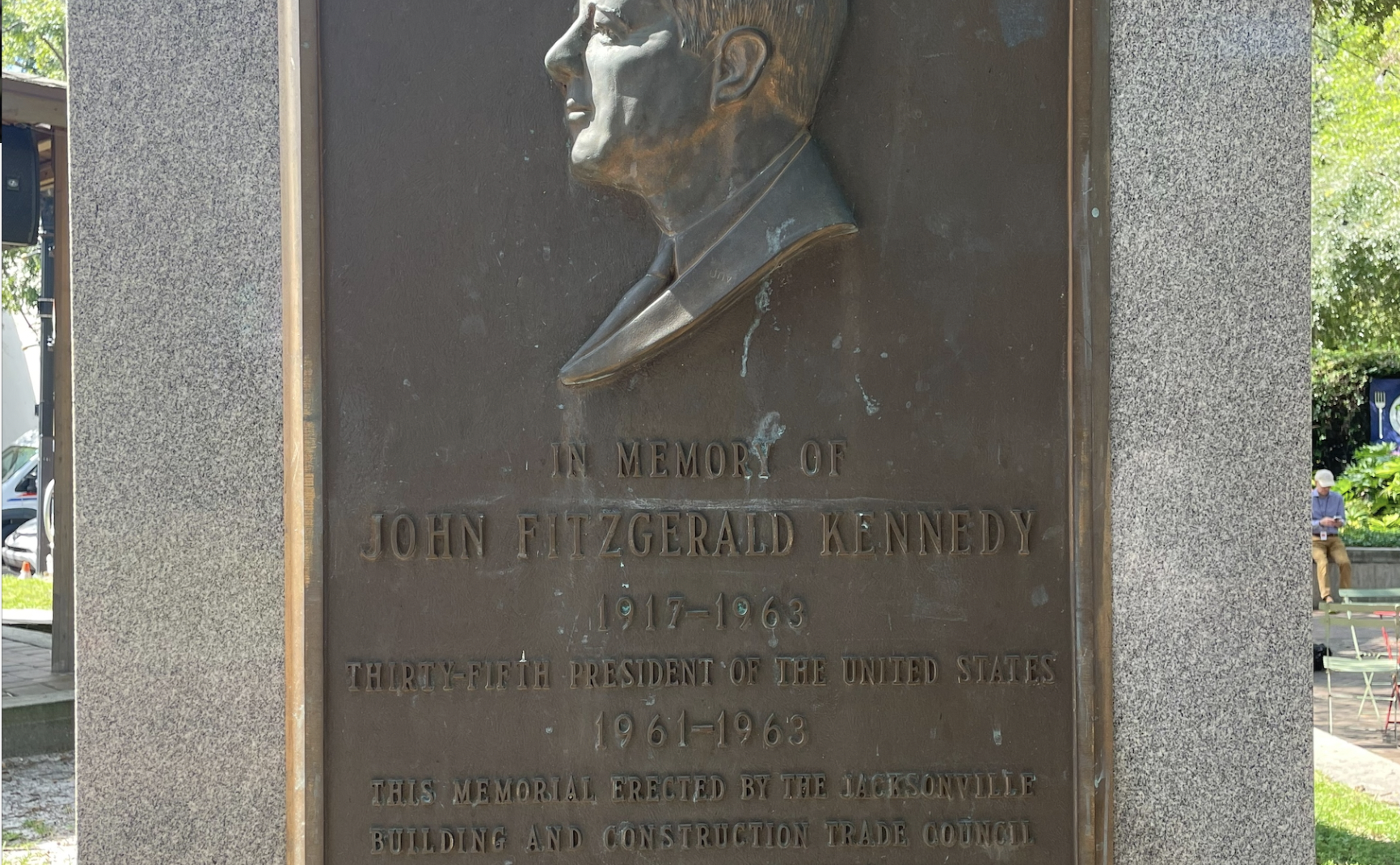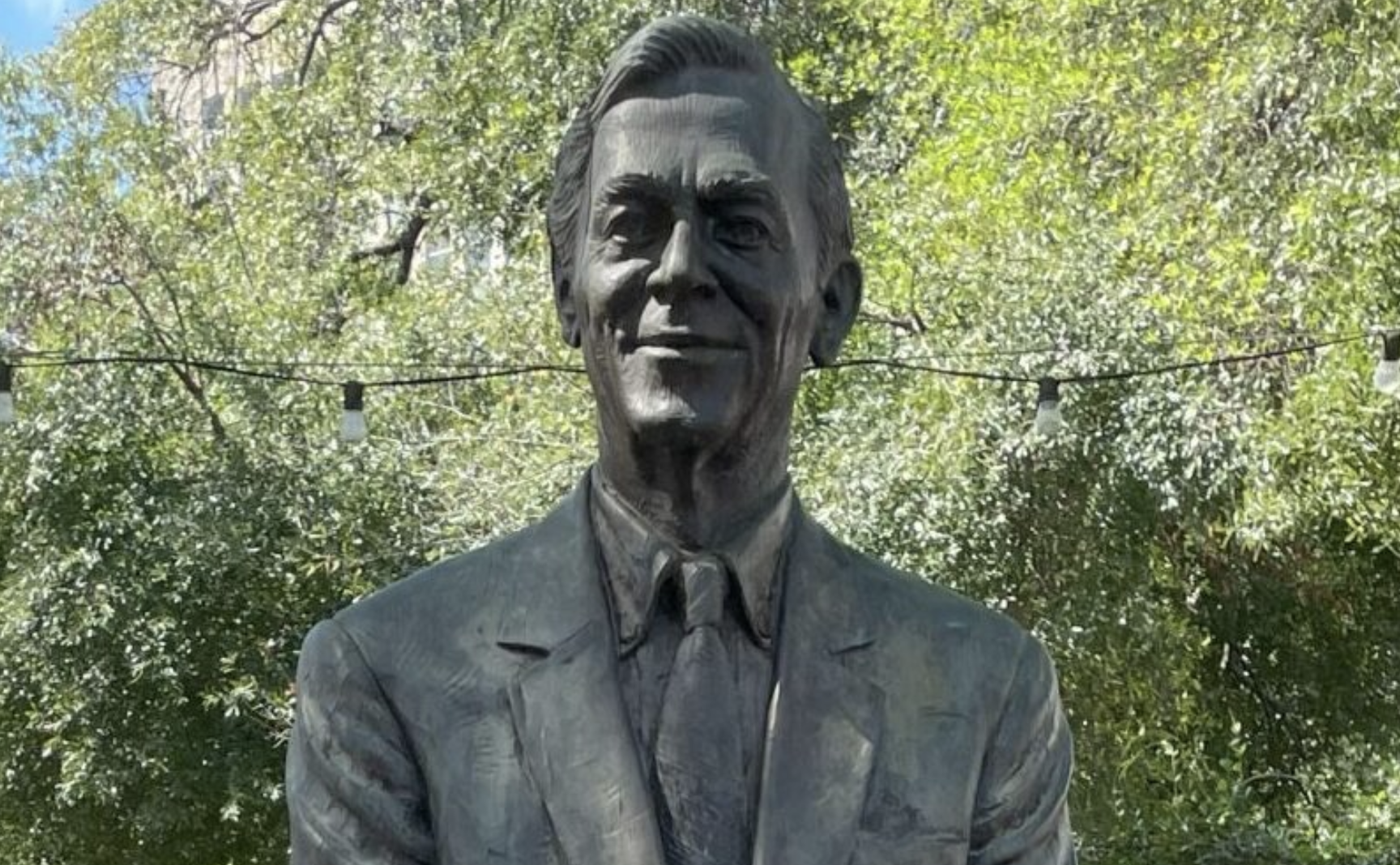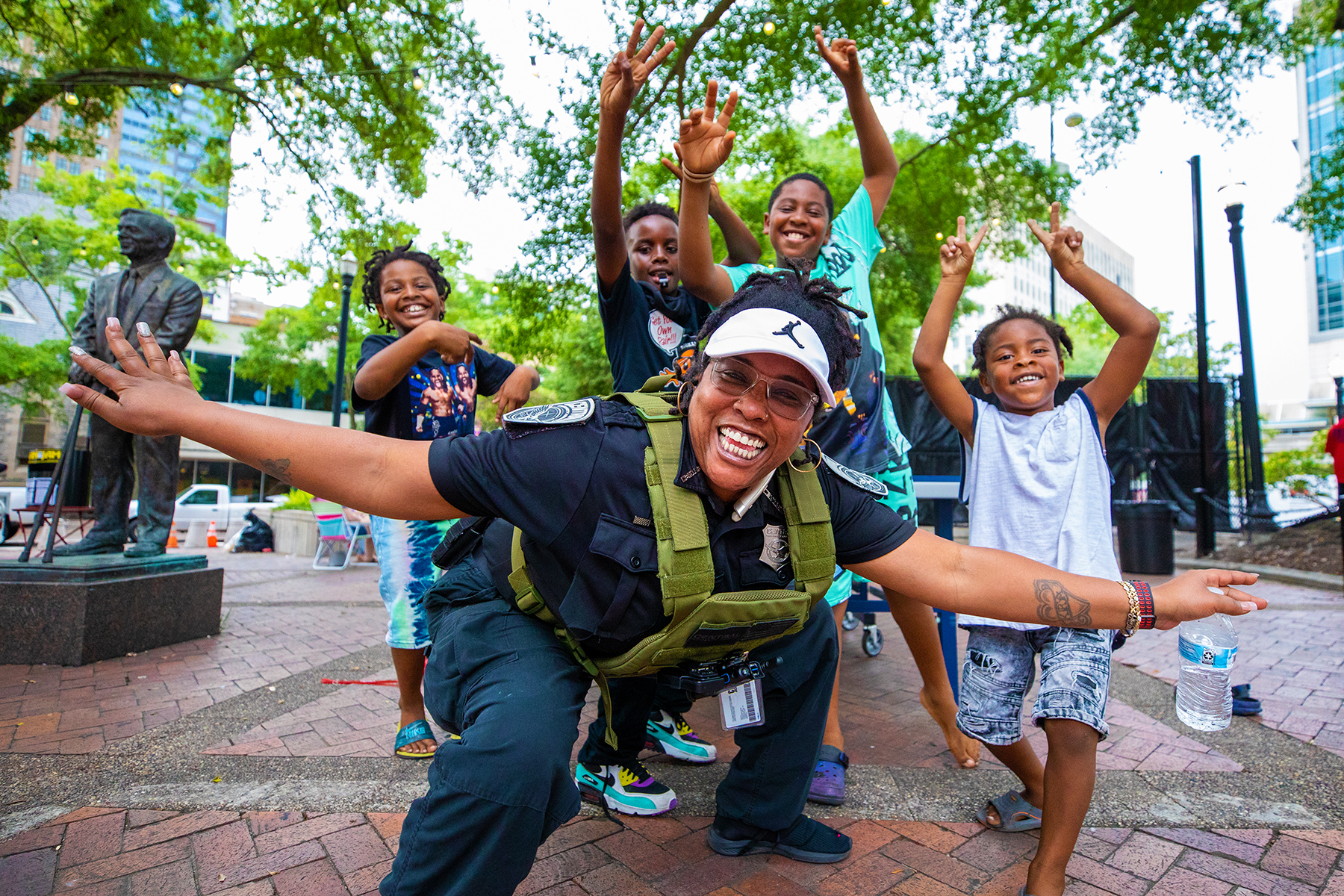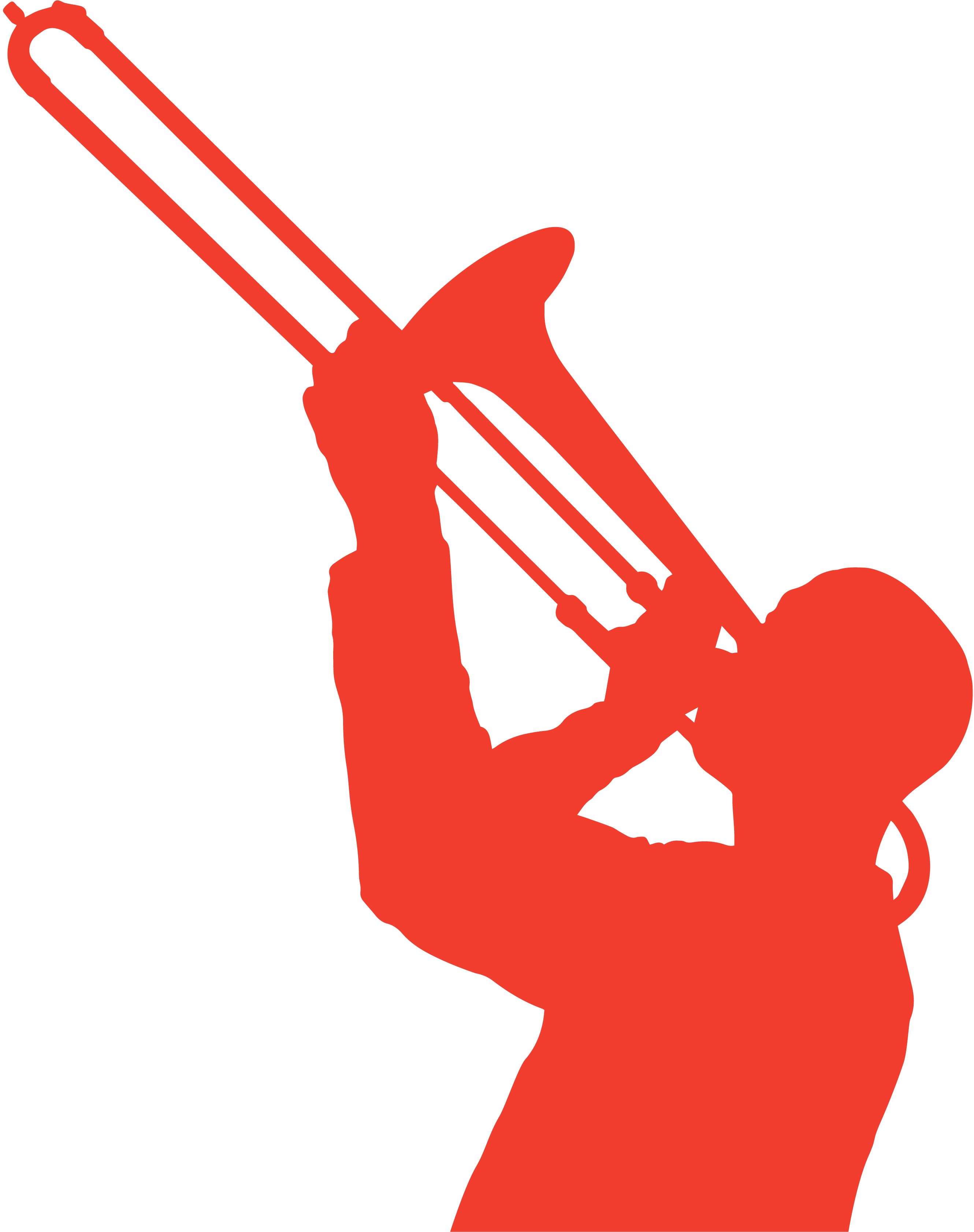James Weldon Johnson Park Park, a 1.5-acre public square in the center of the city, is Jacksonville’s first and oldest park and the site of many significant historic events. Land for the public square – identified in Isaiah Hart’s original plans for Jacksonville – was sold to the city in 1866 by Hart’s heirs, for a price of $10. The park became the cultural and social center of the city, and for over a century it was the heart of downtown, the hub of commerce, and the public meeting place for citizens from all walks of life.

James Weldon Johnson was born on June 17, 1871 in Jacksonville, FL. As a child, he studied piano and guitar. The achievement of his father, headwaiter at the St. James Hotel, inspired him to pursue a professional career. Molded by the classical education for which Atlanta University was best known, Johnson regarded his academic training as a trust. He knew he was expected to devote himself to helping black people advance. He graduated with honors in 1894 and returned to Jacksonville to teach at Stanton High School, where he later became Principal. While principal, he founded and edited the first Negro daily in the United States, The Daily American.
During this time at Stanton, James wrote poetry and began to collaborate with his brother, John Rosamond, on lyrics and music. Together they wrote “Lift Every Voice and Sing” in 1899 to honor renowned educator Booker T. Washington and performed for the first time in 1900 by 500 school children as a tribute to Abraham Lincoln’s birthday. The song became widely popular and has become known as the “Negro National Anthem,” a title that the NAACP adopted and promoted. The song included the following lines:
Lift every voice and sing, till earth and Heaven ring,
Ring with the harmonies of liberty;
Let our rejoicing rise, high as the listening skies,
Let it resound loud as the rolling sea.
Sing a song full of faith that the dark past has taught us,
Sing a song full of the hope that the present has brought us;
Facing the rising sun of our new day begun,
Let us march on till victory is won.








